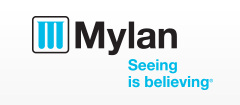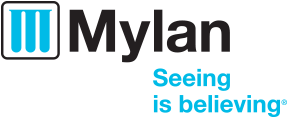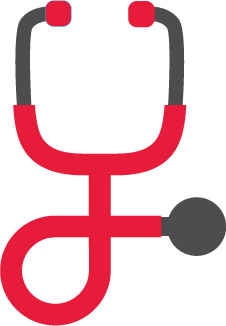Patient Education Literature on Breast Cancer
1. What is breast cancer?
Breast cancer is a malignant tumor that starts in the cells of the breast. Abnormal cells grow out of control and can invade into surrounding tissues or spread (metastasize) to distant areas of the body. The disease occurs mostly in women, but men can get it too.1
2. How common is breast cancer?
Breast cancer is the second most common cancer in the world and, by far, the most frequent cancer among women with an estimated 1.67 million new cases diagnosed in 2012. India has approximately 145,000 new cases and 70,000 deaths because of breast cancer per year. It is estimated that by 2030 the number of new cases of breast cancer in India will reach just under 200,000 per year.2,3
3. What are the risk factors for breast cancer?
The following risk factors have been associated with breast cancer4,5:
- Being female
- Increasing age
- Family history of breast cancer
- Onset of menstruation before age 12
- Onset of menopause after age 50
- Not having children or having a first child after the age of 30
- Radiation exposure
- Being overweight
- Excessive alcohol consumption
4. Is there a link between oral contraceptives / hormone replacement therapy and breast cancer?
There is an increased risk of breast cancer in women who have been using birth control pills for more than five years. However, due to the low amount of hormones in birth control pills today, the risk is relatively small.6
Hormone Replacement Therapy (HRT) predisposes women for breast cancer. HRT was added to the carcinogenic list by the American Cancer Society in early 2000. It is recommended that women with known risks should not be placed on HRT to control menopausal symptoms. They should instead seek other safer alternatives.6
5. What are the warning signs of breast cancer?
The most common sign of breast cancer is a lump or thickening in the breast. Other signs include - change in the size or shape of the breast, discharge from the nipple, change in the color or feel of the skin of the breast or nipple (dimpled, puckered or scaly; warm, red or swollen).5
It is important to note that in some women there may be no warning signs or symptoms.5
6. What should be done for early diagnosis of breast cancer?
Breast self-examination, clinical breast examination by doctors and regularly scheduled mammograms are vital in the screening and early detection of breast cancer.7
Breast Self-Examination: The examination of one’s own breasts is called breast self-examination, (BSE). Studies so far have shown that BSE alone reduces the number of deaths from breast cancer. However, it should NOT be used in place of clinical breast examination and mammograms.7
Clinical Breast Examination: During the routine physical examination, the doctor or health care professional may do a clinical breast examination (CBE). During a CBE, the doctor will carefully feel the breasts and under your arms to check for lumps or other unusual changes.7
Mammogram: A mammogram is a special X-ray of the breast that can often find tumors that are too small for diagnosis through BSE or CBE. The entire procedure of a mammogram takes about 20 minutes.7
7. How often should breast self-exam (BSE) be done?
Monthly breast self-examination is recommended. Women should perform their breast self-exam 7-10 days after the beginning of menstrual period, which is also the time when breasts are least tender and lumpy. If they are no longer menstruating, women should select the same day of the month (first of the month for example) and mark it on the calendar as a reminder to perform breast self-exam.6
8. How is breast self-exam (BSE) done?
You may refer to the pictorial representation to know how breast self-exam is done.8
- Steps 1-3 involves inspection of the breast with the arms hanging next to the body, behind the head and on the side
- Step 4 is palpation of the breast
- Step 5 is palpation of the nipple
- Step 6 is palpation of the breast while lying down

9. Is there a way to prevent breast cancer?
Unfortunately, there is nothing that one can do to ensure breast cancer is avoided absolutely. But studies indicate that there are some lifestyle choices that appear to help reduce breast cancer risk.6,9
- Healthy Diet: A nutritious, low-fat diet (30 grams or less) with plenty of fruits and green leafy vegetables can help reduce the risk of developing breast cancer. A high-fat diet increases the risk because fat triggers estrogen production that can fuel tumor growth6,9
- Physical Activity: Regular exercise boosts the immune system and helps keep weight in check. With as little as three hours of exercise per week, or about 30 minutes a day, a woman can begin to lower her risk of breast cancer6,9
- Take a multivitamin and make sure it includes adequate folic acid. The recommended daily dose of folate is 400 micrograms6,9
- Plan having children before 35 years of age6,9
- Breast feed children6,9
- Avoid unnecessary X-rays6,9
- Evaluate any breast symptoms or changes that develop6,9
- Schedule regular mammograms6,9
Please Note: Your doctor is the best person to guide you. Please consult your doctor for any medical advice
References
1. Breast Cancer. American cancer society. 2014. Available at: http://www.cancer.org/acs/groups/cid/documents/webcontent/003090-pdf.pdf.
2. WHO. GLOBOCAN 2012: Estimated Cancer Incidence, Mortality and Prevalence worldwide in 2012. Available at: http://globocan.iarc.fr/Pages/fact_sheets_cancer.aspx.
3. Toral Gathani et al. INDOX Case-Control consortium. Available at: http://www.indox.org.uk/node/34.
4. Breast cancer. Mayo clinic. Available at: http://www.mayoclinic.org/diseases-conditions/breast-cancer/basics/risk-factors/con-20029275.
5. Breast cancer FAQs. The Ohio State University Comprehensive Cancer Center. Available at: http://cancer.osu.edu/patientsandvisitors/cancerinfo/cancertypes/breast/faq/Pages/index.aspx.
6. Breast cancer FAQs. National Breast Cancer Foundation. Available at: http://www.nationalbreastcancer.org/breast-cancer-faqs.
7. Breast Cancer Information Sheet. Asian American Network for Cancer Awareness, Research and Training. Available at: https://ethnomed.org/patient-education/cancer/breast-cancer/breast-cancer-eng-la.pdf/view.
8. Breast self-examination. Wikipedia. Available at: http://en.wikipedia.org/wiki/Breast_self-examination
9. Breast cancer. Dr. Susane Love research foundation. Available at: http://www.dslrf.org/breastcancer/content.asp?L2=7&L3=2&SID=232.
-

Questions?
Get more information on our products, services and Mylan Global Center locations. -

Business Opportunities
Do you have an opportunity or a collaboration idea?
Find a Mylan Product
Search our Indian pharmaceuticals products.






